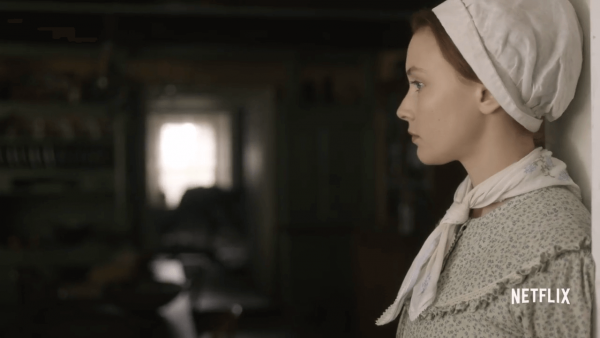
FIRST IMPRESSIONS I first read the book when I was 17 years old, and I remember little else of that year besides the transformative experience of reading that book, over and over again. It reached deep into me, in a way I’m not sure I completely understood at the time. It addressed things that were hidden from me, but pertinent to my life: the splitting off that can happen in a personality when someone has been harassed or assaulted or has come of age in a world where women are prey, the ephemeral nature of memory and the idea that we’re all unreliable narrators.
WHAT WAS KEPT FROM THE BOOK It was extremely important to me to keep the immigration from Ireland, in all its squalor and struggle, in the show. It was expensive, and it would have been an obvious thing to cut, but I felt that — especially in this political climate — it was important to show how hard and brutal it can be to have to leave home and seek refuge somewhere else, and to remind people who take their citizenship and rights for granted that this is how most of our ancestors, grandparents or parents got here.
WHAT WAS CHANGED I made the history of sexual abuse in Grace’s past, with her father, more pointed and literal, and I tracked the line of her trauma and dissociation to this part of her history. I wanted to create a more obvious narrative of harassment and abuse and what that can do to a person. The pieces of the puzzle were in the book, but I wanted to shine a light on that aspect of it more glaringly. When I wrote it, I thought I would have to explain this decision or that people would miss that thread. As it turned out, the series came out at the same time as the #MeToo movement, so no explanation was needed and everyone seemed to get it. It was a shocking, thrilling surprise.

Leave a Reply